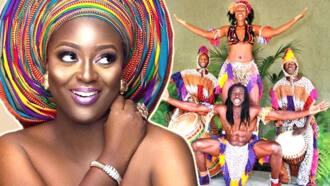Importance of culture in Nigeria
The way of life of any society involves a number of areas (labour, politics, economics, ethics, aesthetics, law, family, religion, etc). The importance of culture in Nigeria cannot be overestimated. After reading this article you will find out why.
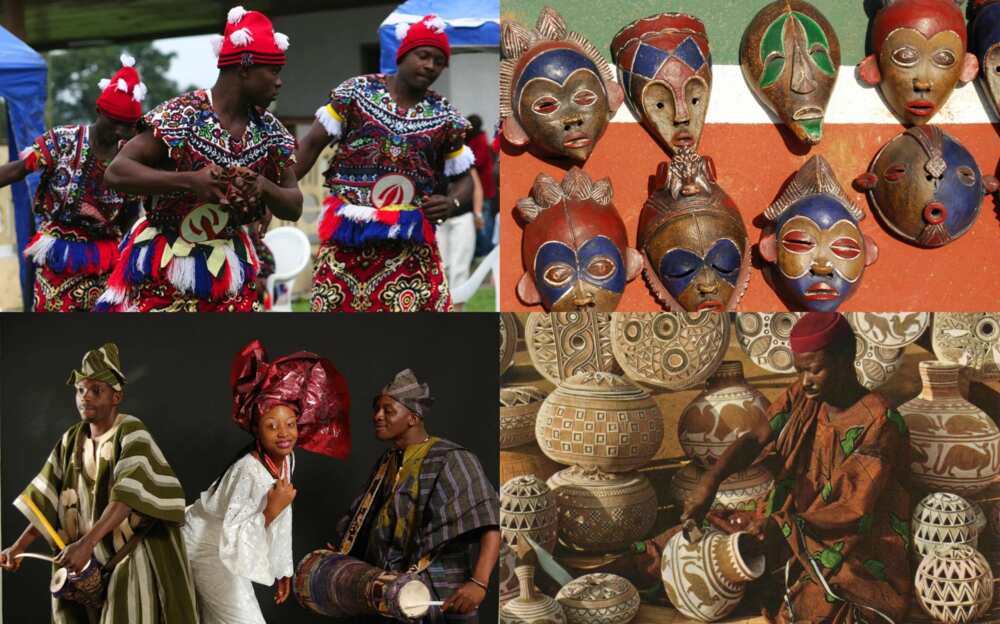
Importance of culture
Nigeria culture plays an important role in lives of separate individuals and the society as the whole. Culture helps to accumulates, control and organise the human experience. It is basically what makes a person human.
When a person becomes a member of the society, he accumulates knowledge about language, symbols, values, norms, customs and traditions of that environment. In this country, individuals usually become a part of one or more ethnic groups in Nigeria. An person's immersion in a culture is determined by his/her socialization, familiarity with cultural heritage, as well as the development of his individual abilities.All these are usually achieved in the process of upbringing and education.
Culture unites people, integrates them, and ensures their strength as a community. Unfortunately, in our country, some subcultures oppose each other which lead to the spread of cultural differences in Nigeria. Cultural conflicts can arise within large communities as a result. To prevent this, it is important to control the formation of cultural values in a society. This is one of the tools used by the government to create a more conducive and secured environment.
READ ALSO: History of Igbo-Ukwu art

How does culture affect a person and society?
In the course of socialization the values, ideals, norms, patterns of behavior become a part of a person's self-awareness. They shape and regulate his behavior. We can say that culture as a whole determines the framework in which a person can and should act. Culture regulates the behavior of a person in his family, school, at work, home, etc., by putting forward a system of prescriptions and prohibitions. Violation of these laws will lead to certain sanctions that are established by the community and are supported by the power of public opinion.
Different generations of Nigerians are closely connected due to their culture. It's a complex system that transfers social experience from one generation to other and from era to era. Apart from culture, society does not have any other mechanisms with which to concentrate and gather the wealth of the experience that has been accumulated by previous generations. Therefore, culture serves as a social memory for mankind.
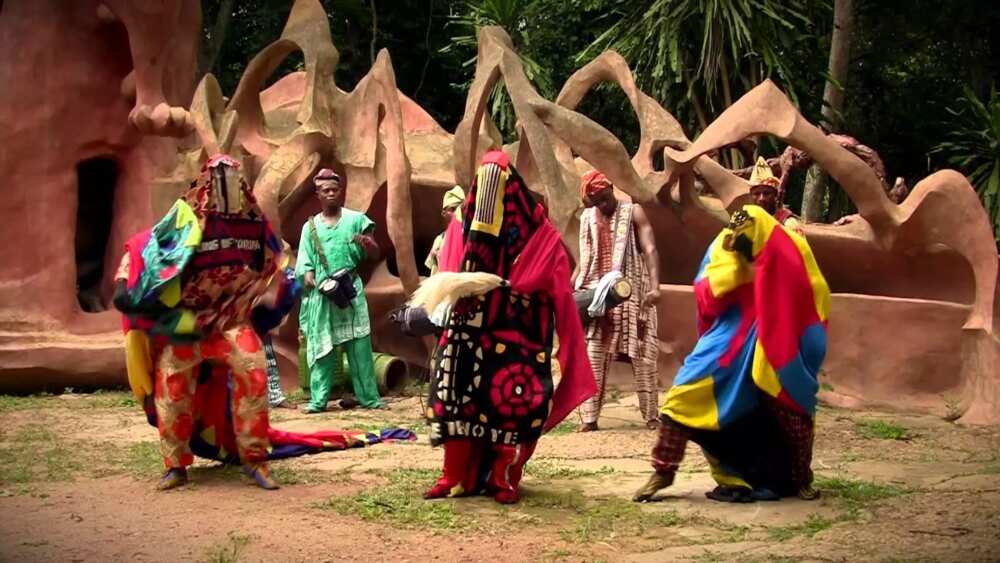
Culture creates favorable opportunities for acquiring knowledge and physical development. It can be argued that the intellectual level of a society depends on how adequately that particular society can use its richest knowledge embedded in history and generations past.
There is an indefinite number of cultures around the world. We are all different, but culture helps to unite us. The difference in the way we work, live and interact with each other is as a result of the culture we have come to be a part of.
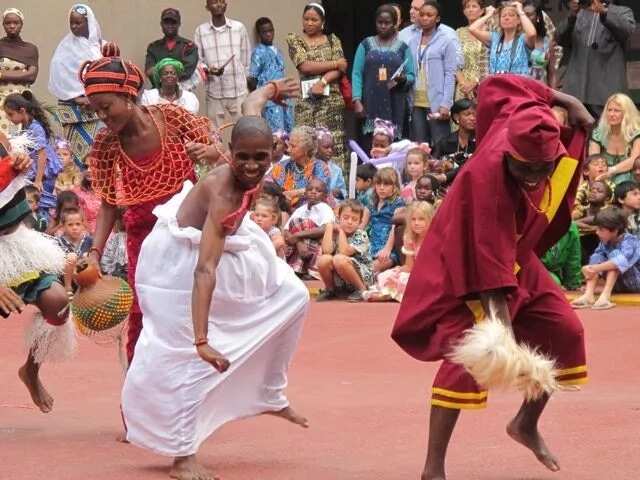
Culture as a form of symbol
Our culture determines the way we communicate with others. Language is the most important way of mastering the national culture. In Nigeria, there are more than 500 languages that are spoken. This is due to the large number of ethnic groups that exist in the country. Other symbols used to communicate and share stories are music, sculpture, dance, painting, theater etc. These are also important aspects of our culture.
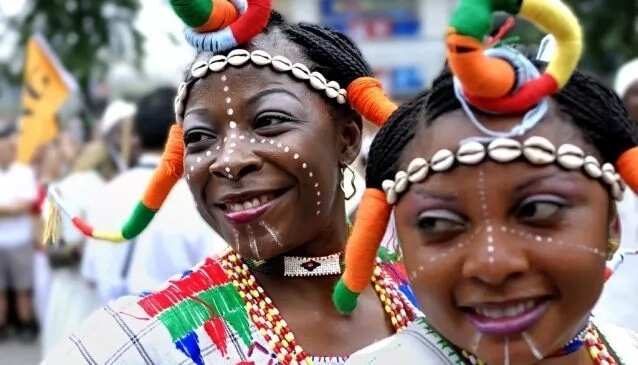
Nigerian ethnic groups
We live in a multi-faceted country. The population of Nigeria makes up 1/8 of the inhabitants of the African continent. There is a large variety of linguistic and ethnic groups in the country. More than 250 ethnic groups can be found in Nigeria today, each of which has its own traditions and customs. 8 major groups account for 90% of Nigeria's population: Hausa, Igbo, Yoruba, Ijaw, Kanuri, Fulani, Ibibio, Tiv.
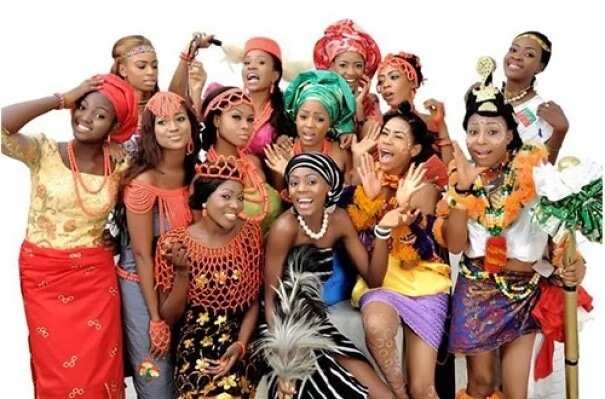
Kanuri, Fulani, Hausa, Tiv - are the most densely populated groups that live in the north. The overwhelming majority, with the exception of Tiv, profess the Muslim religion. The Hausa group (majority of them are Muslims) prevail in the northern region of Nigeria. The Yoruba people live in the southwestern and north-central parts of Nigeria. Igbo dominate in the south-central and southeastern parts of the country.
All this diversity makes the unification of Nigerians into a single nation a rather difficult task. However, cultural differences should be perceived as wealth, not an obstacle. The most important task for the government is to find ways to unite people, rather than divide them.
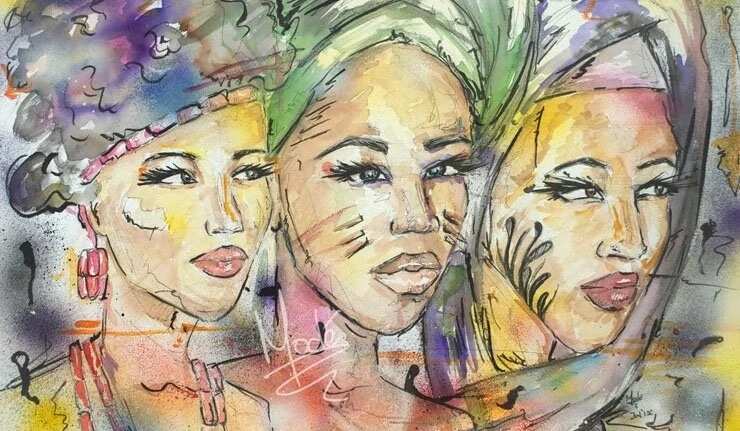
Clearly, the system of culture is not only complex and diverse, but also very mobile. It’s an active process, a lifestyle of people which is constantly growing, evolving and mutating. Let's appreciate and preserve our culture and traditions and use them as vehicles towards our development, growth, and unity.
READ ALSO: How many tribes in Nigeria?
Source: Legit.ng


